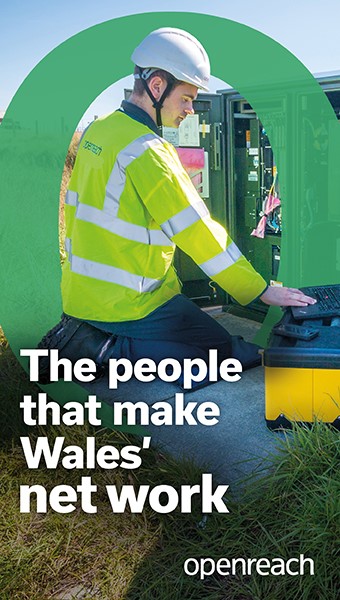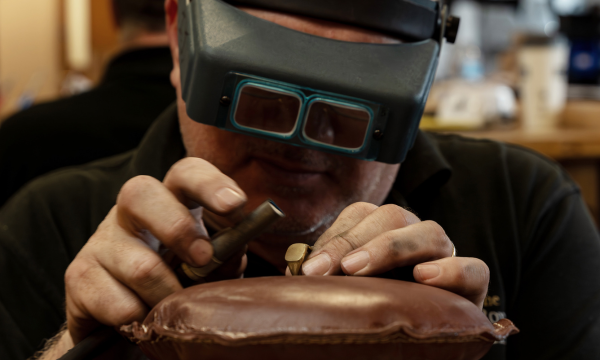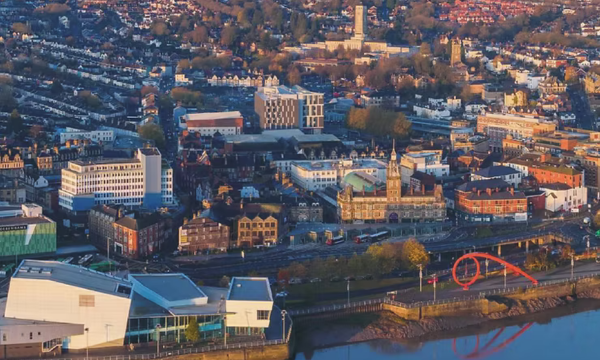Transforming our infrastructure, connectivity and mode of transport is absolutely critical to the sustainability and future success of Southeast Wales – and in this illuminating update, Cllr Huw David, Chair of the CCR Regional Transport Authority, enlightens us on the ‘hard yards’ made, the milestones already reached and the shape of things that are about to come
“In many ways the progress made by our Regional Transport Authority (RTA) mirrors that of Cardiff Capital Region itself. It is little more than five years since the ten unitary authorities of Southeast Wales came together to shape a new region built on mutual trust and a shared vision – creating a culture of real purpose. I’ve witnessed a similar phase of evolution in our RTA over the past 12 months – where ten Transport Cabinet leads have worked seamlessly to make phenomenal progress through a strong and collaborative strategic partnership.
“The milestones met and outputs achieved are already impressive. Day-to-day, we have been advising CCR’s Regional Cabinet on the many and myriad matters that affect transport planning, infrastructure and investment across our region, including major landmark projects such as the South Wales Metro. We’re on-plan and in action on a raft of ‘approved investment’ projects such as Metro Plus, Metro Central and Ultra Low Emission Vehicles (ULEV) – each of which is transformational in its own right; and as a sum of the parts will come together to shape a totally transformed region stretching from Monmouthshire to Bridgend, from the Valleys to the coast.
“That spirit of collaboration made possible our revolutionary Passenger Rail Vision published last year. It simply wouldn’t have been imaginable to have such a vision before ten local authorities came together with one common aim. It means we’re a region that’s now built – and building – on trust. And we’re trusted too – being asked to play a wider informing role into key shapers of the future such as the Burns’ Commission, the Hendy Review and the Levelling Up agenda.”
“Building on our successes to date, through an enhanced strategic focus”
“I believe the best may yet be to come. Yes, we’ve been able to hit our milestones and have a huge influence on initiatives such as the Challenge Fund projects aimed at introducing a zero carbon fleet, but sometimes it has been frustrating that the RTA didn’t have a “true” regional transport remit. So we very much welcomed the moment when the CCR Regional Cabinet revised the RTA’s terms of reference – enabling us to become optimally strategically focussed and aligned even closer to the evolving powers of the Corporate Joint Committee (CJC). That evolution has brought a requirement – an ‘immediate commencement duty’ – for CCR to produce a Regional Transport Plan. For the very first time, our region has a statutory duty in relation to transport planning: offering us a very important opportunity to take our joined-up thinking to the next level.
“In one respect, taking our strategy wider and deeper won’t be difficult, as so much work has already been done. There’s certainly no absence of vision for the connected, sustainable and prosperous future we want to create – and in many ways we have been ahead of the curve in our plans around a multi-modal and highly sustainable transport system with a zero carbon ambition embedded at the very heart.
“The challenge lies in aligning those ambitions with economic objectives and land use: making sure that the key strategic frameworks of our region – such as the Regional Transport Plan and the Economic, Industrial, Social and wider Sustainability plans – all talk to each other and complement each other. That process of maturity will be greatly helped by the RTA evolving into a formal sub-committee of CJC, with its own set of functions and powers.”
“Metro Plus is connecting and integrating on a scale never seen before”
“Metro Plus is making strides in connecting and integrating our region like never before, through ten major schemes – one in each local authority – bringing the latest in sustainable 21st-century infrastructure. Six of those schemes will be delivered by the end of March 2023, with four further – and larger – developmental schemes set to bring even wider benefits to our communities.
“The Metro Plus element of the Cardiff East Bus Priority project is expected to be complete by early Winter this year, forming part of Cardiff Central’s £10m wider strategic transport programme; and it’s also wonderful to see a similar timeline being achieved with the Porth Interchange, where the new bus station is integrated with the adjacent rail site as part of a wider regeneration programme for the town. Early winter will also see completion of the Pontypool & New Inn Park & Ride, which offers up to 250 spaces, making a real difference to the current road congestion and reducing single-occupancy car use in the area.
“Elsewhere across our region, the Severn Tunnel Park & Ride will provide 200 spaces, an additional bridge option and a station upgrade, with the aim to complete by Winter next year – a similar timeline as the Porthcawl Bus Terminal, which is again a key part of a wider regeneration scheme. March next year should also see the completion of the Barry Docks Transport Interchange that will integrate rail and bus services and be a key driver of what is already becoming a major regeneration in this fast-growing town.
“Beyond those transformational projects, the Caerphilly Interchange development scheme, Abertillery Interchange extension to the Ebbw Vale line, Newport-Cardiff Bus Priority and Merthyr Rail Station development programme are all key developments coming into view on our horizon – with each promising a major improvement in the way we live, work and play.
“We’re leading the way in ULEV”
“ULEV is embedded into all of the transport programmes that I’ve already mentioned and by the end of the 2021/22 financial year we will have stationed 34 dual 50kw taxi chargers at 31 sites around the region – as well as having purchased 44 100%-electric taxis as part our drive to encourage taxi drivers to adopt electric vehicles. The early pilots have been very useful learning experiences – and with 159 dual 7 & 22kw public use chargers on our streets and in public car parks, we’re now moving on from our Phase 1, looking to grow a wider charger provision over the next four years.
“That fast evolution will include developing our Car Club programme to encourage households to move away from 2nd car ownership, as well as a further trialling of public and school transport EVs – and we’re even currently considering providing grants to help taxi drivers purchase their EVs.
“ All things considered, we’ve come a long way in a short space of time – and we have some way to go – but it’s a journey that is sure to transform transport in our region and give us every chance of inclusive prosperity and sustainable success in the years to come.”












